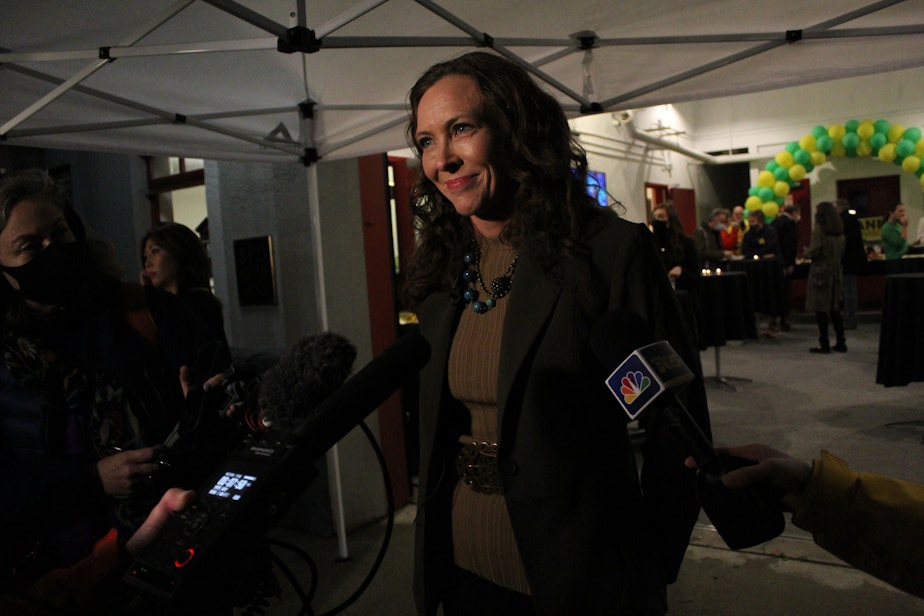Seattle City Attorney says her office is filing more cases, more quickly

In a new report, Seattle City Attorney Ann Davison said misdemeanor cases from the office’s criminal division are moving forward more quickly now than at any time in the past five years — and criminal filings have increased significantly compared to last year, at 124%.
Davison said the median time for her office to make a filing decision on a case is now three days.
Over the past five years, it took the office a median of 129 day to offer any response, Davison said, including whether to decline, divert, or prosecute a case referred for charging by Seattle police. Davison said that waiting more than four months to make a filing decision sent the wrong message to victims of crime.
“That tells a victim that what happened to them didn’t matter, that tells an officer that their work didn’t matter and we just sat here and let things go stale,” she said.
Davison said the delays also meant more cases were dropped as victims or witnesses moved away. Last year, the office declined more than a quarter of its domestic violence referrals – 27% – due to difficulty in contacting victims. So far this year, she said, just 8% of domestic violence cases were declined for that reason.
Sponsored
“We have seen that dramatic increase in survivor participation in domestic violence, because we’ve been more responsive,” Davison said.
Davison took office this year after incumbent City Attorney Pete Holmes lost his re-election bid. In February, she announced plans to make filing decisions within five days of every police referral.
The report said over 80% of referrals now receive a filing decision within five business days, noting that “domestic violence referrals are afforded an additional week to engage in a trauma informed approach, which considers input from the victim on their safety concerns. Referrals involving LEAD clients get 30 days for clients to engage in services.”
Davison inherited a backlog of 5,000 cases, and this spring announced plans to dismiss 2,000 of those cases in order to act on new ones more quickly. So far, the new report said her office has made filing decisions on 900 of the backlogged cases.




